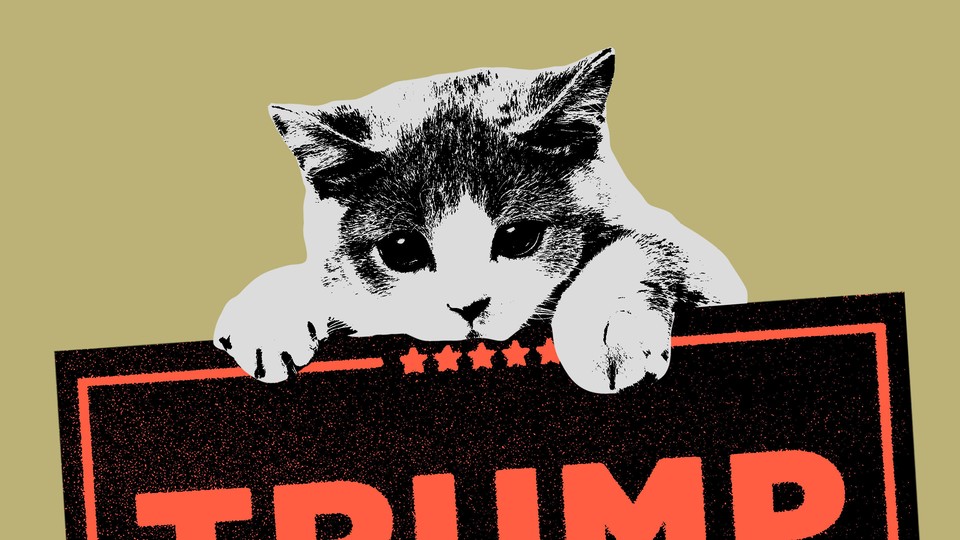The Worst Cat Memes You’ve Ever Seen
3 min read
Over the past 24 hours, the MAGA faithful have been busy sharing cat memes with one another. These are not the adorable “lolcats” that have circulated on the internet for well over a decade, but something darker. They reference a baseless and racist claim from Donald Trump’s running mate, J. D. Vance, that Haitian immigrants in Ohio are eating people’s pets. Trump, the memes show, will protect America’s house cats from this supposed threat. In one such post, he is depicted running away from a mob of Black people while clutching two tabbies; in another, Kamala Harris prepares to cook a cat in a pot.
These cat memes, which have been posted or reposted by the likes of Senator Ted Cruz, Elon Musk, and Donald Trump Jr., aren’t quite a joke, and they aren’t quite serious. They’re classic trolling. When Cruz posts an image of two cats hugging overlaid with the text please vote for Trump so Haitian immigrants don’t eat us, he’s winking at his followers and trying to get a rise out of his political opponents. Taken seriously, the content of these posts is deeply offensive and dehumanizing. But the people sharing them get to hide behind a thin veil of irony: They’re just some funny cats. If you’re offended, that’s your problem. (The absurdity is only heightened by the fact that many of the images were clearly made with generative AI, lending them a strange, cartoony aesthetic.) Trump is well versed in this tactic—he routinely attempts to walk right up to the edge of plausible deniability. Consider, for example, the time he floated the idea of executing one of his top generals. Vance made this trolling logic plain earlier today, when he posted, “Don’t let the crybabies in the media dissuade you, fellow patriots. Keep the cat memes flowing.”
In the past, this behavior has been called doing it “for the lulz.” As Adrian Chen chronicled in The Nation in 2014, lulz—a perversion of lol—justifies heinous behavior online. The term came out of the bowels of 4chan in the mid-aughts and typically means maniacally laughing at a victim. It has often been associated with jokes about topics such as the Holocaust, suicide, terrorism, and rape. Chen’s article describes 4chan users flooding the memorial page of a teenage car-crash victim with photographs of the accident, and harassing an 11-year-old girl who had posted a YouTube video they didn’t like—all of it for the lulz.
The lulz have always been a tool to obfuscate that an individual was being racist, sexist, or generally hateful. Chen’s story offered the example of the infamous hacker Andrew “weev” Aurenheimer. Weev was part of the first waves of what would eventually become known as the alt-right, and he frequently went on anti-Semitic rants “for the lulz.” Except there was no irony to be found: He was actually just a neo-Nazi. In 2014, he published an article in The Daily Stormer, and in 2016, he exploited unsecured printers on colleges across the United States by causing them to print swastika-covered fliers supporting “the struggle for global white supremacy.”
The endgame of prior for-the-lulz moments provides clues as to where the MAGA cat memes are headed. The casual misogyny that the trolls of 4chan espoused eventually culminated in cyberstalking and online harassment of women that was sometimes so pernicious, it drove them away from the internet altogether. (Gamergate is the most famous and most significant example of this.) This kind of posting almost never stays online. It’s all fun and games, until it isn’t.



